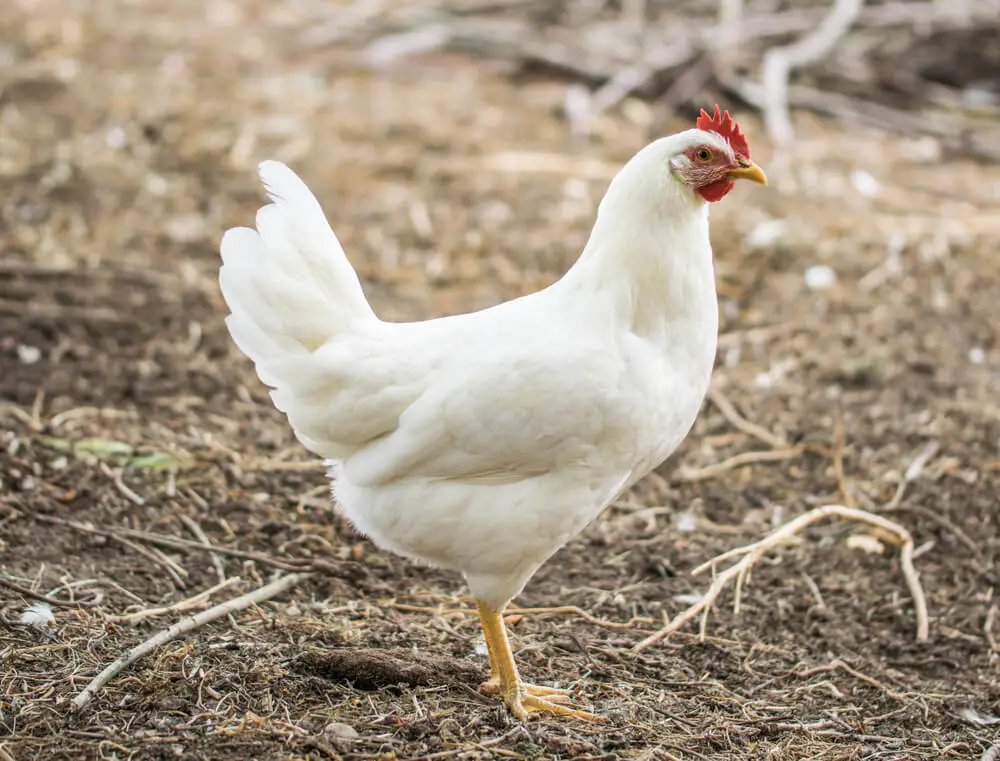If you’re considering embarking on the rewarding journey of chicken keeping in Kentucky, you’re in for a clucking good time. Kentucky’s diverse climate and rich agricultural heritage create the perfect backdrop for raising chickens, whether you’re aiming for a steady supply of fresh eggs or seeking feathered companions with charming personalities.
In this comprehensive guide, we’ll delve into the world of chicken breeds tailor-made for the Bluegrass State. From the bustling egg factories to the friendly family pets, we’ll introduce you to the top egg-laying champions of Kentucky. These breeds are prized for their adaptability to Kentucky’s climate, their consistent egg production, and their suitability for various purposes.
So, whether you’re a seasoned poultry enthusiast or a newcomer to the world of chicken keeping, prepare to feather your nest with invaluable insights and expert tips. From understanding local regulations to fortifying your coop against Kentucky’s ever-changing weather, we’ve got you covered.
Let’s get started on your journey to becoming a successful Kentucky chicken keeper.
1. White Leghorn
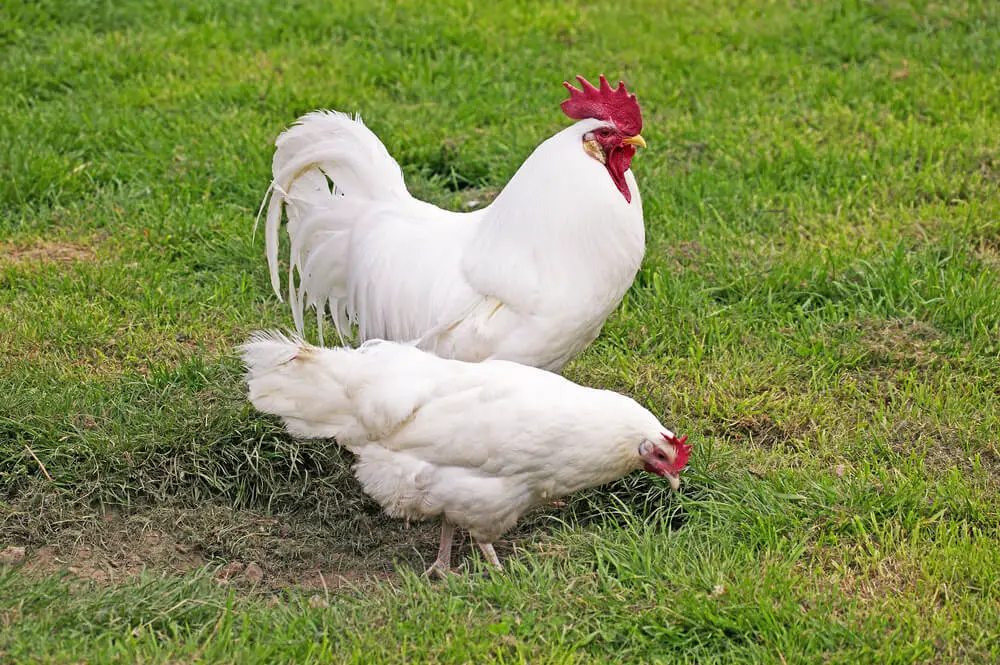
Origin: Italy (Tuscany)
Egg Production: 280-320 eggs per year
Temperament: Hardy and adaptable, but somewhat flighty
The White Leghorn chicken, originating from Tuscany, Italy, in the 1800s, is renowned for its exceptional egg-laying prowess. These birds are hardy and well-suited to Kentucky’s climate, making them a top choice for egg production enthusiasts. However, they are not the best choice if you’re seeking a pet chicken.
2. Rhode Island Red
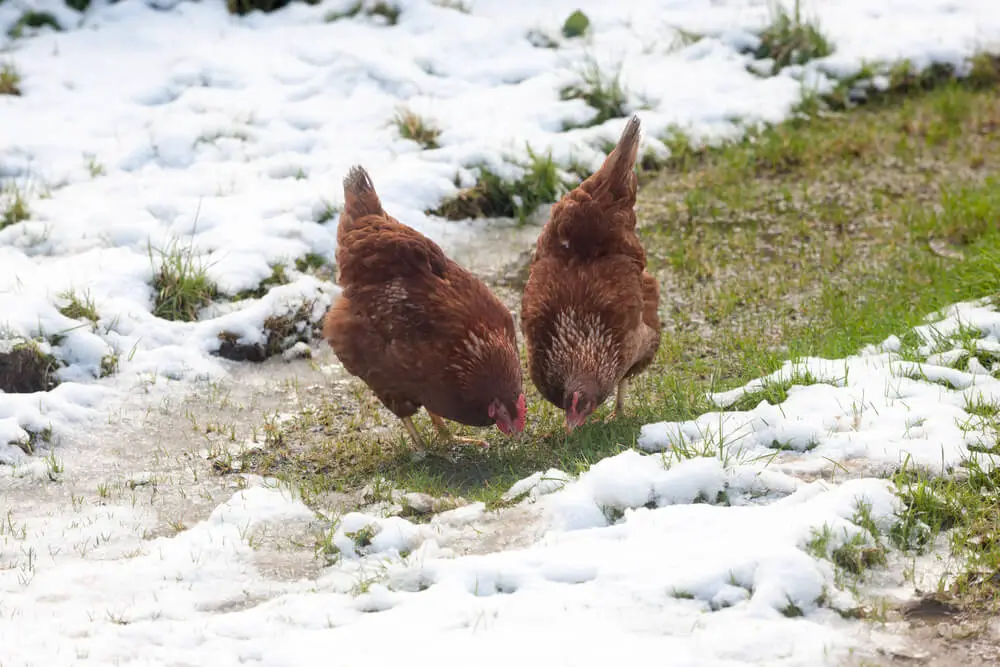
Origin: United States (Rhode Island)
Egg Production: 200-300 eggs per year
Temperament: Calm and friendly, ideal for families
Rhode Island Reds are another excellent choice for egg production in Kentucky. With their ability to lay a substantial number of eggs each year and their adaptability to various climates, they are a popular pick among chicken keepers. Their calm and friendly nature makes them a great addition to family flocks.
3. Sussex
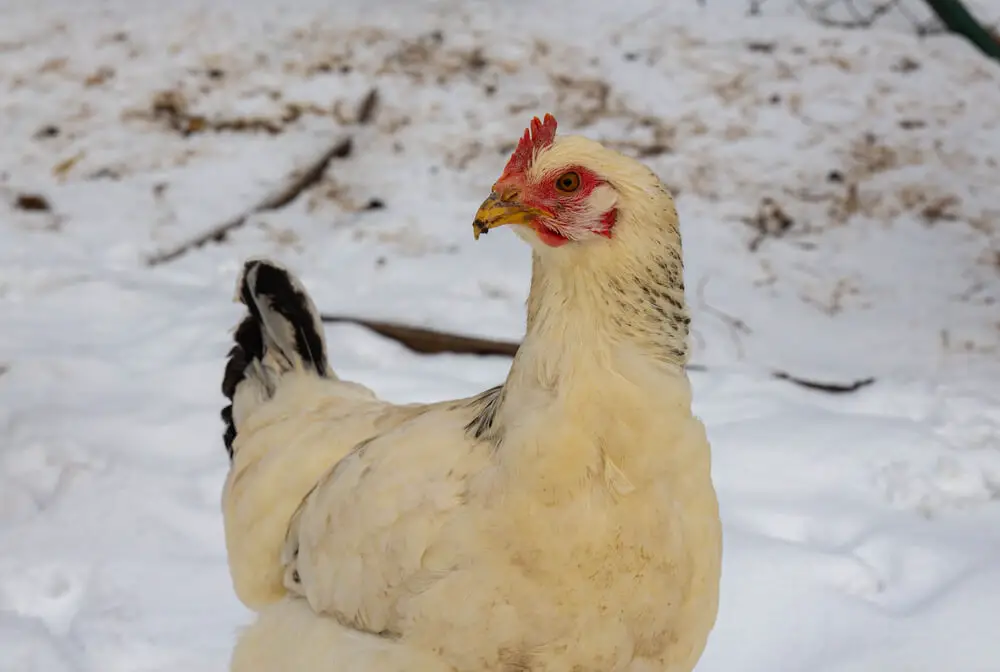
Origin: England (Approx. 43 AD)
Egg Production: 250-275 eggs per year
Temperament: Calm and versatile, known for good foraging
Sussex chickens are celebrated for their versatility and docile nature. They lay a commendable number of eggs and come in a variety of attractive colors. Their calm temperament and excellent foraging skills make them a practical choice for Kentucky chicken enthusiasts.
4. Plymouth Rock (Barred Rock)
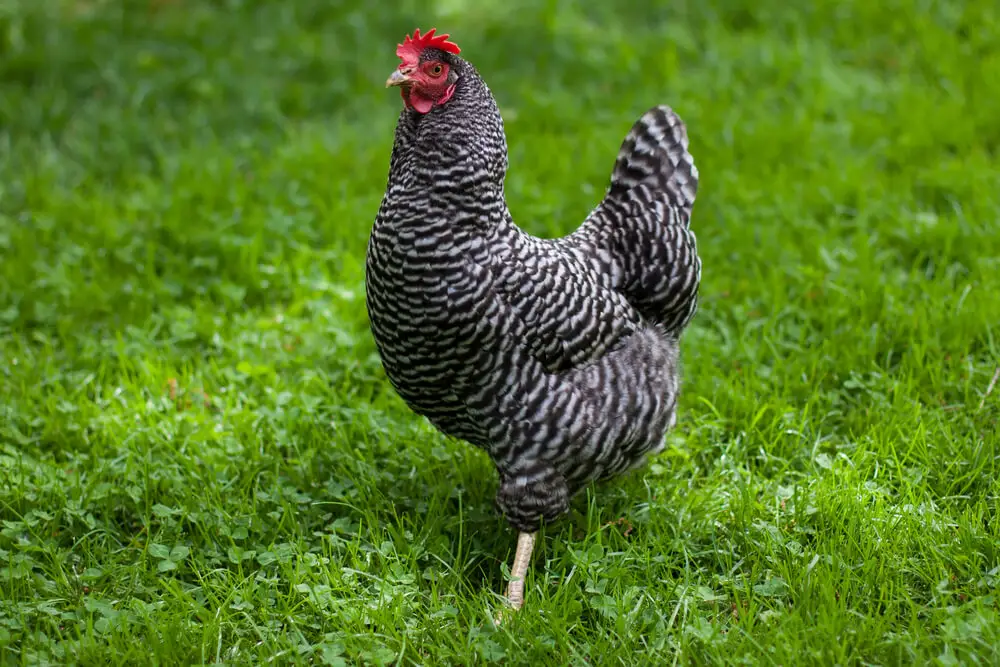
Origin: United States (Massachusetts)
Egg Production: 200-280 eggs per year
Temperament: Friendly and good with children
The Plymouth Rock, specifically the Barred Rock variety, is a beloved choice among chicken keepers. These hardy birds are known for their friendly disposition and are excellent with children. They are well-suited to Kentucky’s climate and offer a reliable egg supply.
| Breed | Origin | Egg Production (per year) | Temperament |
|---|---|---|---|
| White Leghorn | Italy (Tuscany) | 280-320 | Hardy and adaptable, somewhat flighty |
| Rhode Island Red | United States (Rhode Island) | 200-300 | Calm and friendly, ideal for families |
| Sussex | England (Approx. 43 AD) | 250-275 | Calm and versatile, known for good foraging |
| Plymouth Rock (Barred Rock) | United States (Massachusetts) | 200-280 | Friendly and good with children |
Pros and Cons
Let’s take a closer look at the advantages and disadvantages of each breed:
White Leghorn
Pros:
- Exceptional egg production
- Hardy and adaptable
- Suitable for Kentucky’s climate
Cons:
- Flighty temperament
- Not ideal for pet purposes
Rhode Island Red
Pros:
- Good egg production
- Calm and family-friendly
- Adaptable to various climates
Cons:
- Moderate egg production compared to Leghorns
Sussex
Pros:
- Good egg production
- Calm and versatile
- Beautiful variety of colors
Cons:
- May not be the highest egg producer
Plymouth Rock (Barred Rock)
Pros:
- Friendly and great with children
- Decent egg production
- Hardy and adaptable
Cons:
- Egg production is moderate
Local Kentucky Insights
For chicken keepers in Kentucky, it’s essential to consider the following region-specific insights:
- Climate Considerations: Kentucky experiences a range of temperatures throughout the year. Ensure your chicken coop provides adequate insulation and ventilation to keep your hens comfortable in both hot summers and cold winters.
- Local Regulations: Check local ordinances and regulations regarding backyard chickens in your area. Some municipalities may have restrictions on the number of chickens allowed or coop placement.
FAQ
Are there any specific regulations or ordinances I need to be aware of when keeping chickens in Kentucky?
Yes, regulations regarding backyard chickens can vary by city or county in Kentucky. It’s important to check with your local government or zoning department to understand the rules and requirements. Some areas may have restrictions on the number of chickens allowed, coop placement, or distance from neighboring properties.
What steps should I take to protect my chickens from extreme temperatures and weather events?
To protect your chickens from Kentucky’s weather, ensure your coop is well-insulated and provides adequate ventilation. Consider using heat lamps during cold winters and providing shade and fresh water during hot summers. Have a plan in place for severe weather events such as storms or heavy snowfall, and reinforce your coop accordingly.
What type of feed is best for my chickens in Kentucky, and are there any local options for sourcing quality chicken feed?
You can provide commercial poultry feed suitable for the specific life stage of your chickens (starter, grower, layer, etc.). Additionally, supplement their diet with kitchen scraps and forage from your yard.
In Kentucky, you can often find chicken feed at local feed stores or co-ops. Ensure they have access to clean water at all times.
What are some common health issues that Kentucky chicken keepers should be aware of, and how can I prevent them?
Common health issues for chickens in Kentucky can include respiratory infections and parasites. To prevent these issues, maintain a clean coop, provide good ventilation, and practice good biosecurity measures.
Regularly check your chickens for signs of illness, and consult with a poultry veterinarian if you suspect any health problems.
User Comments and Questions
We encourage you to share your experiences and questions about these chicken breeds in the comments section below. Whether you have tips on raising these breeds in Kentucky or need advice, our community is here to help.
Remember, the best breed for you will depend on your specific needs and circumstances. Consider factors such as the breed’s temperament, egg production, and adaptability to your local climate when choosing the right chickens for your flock.
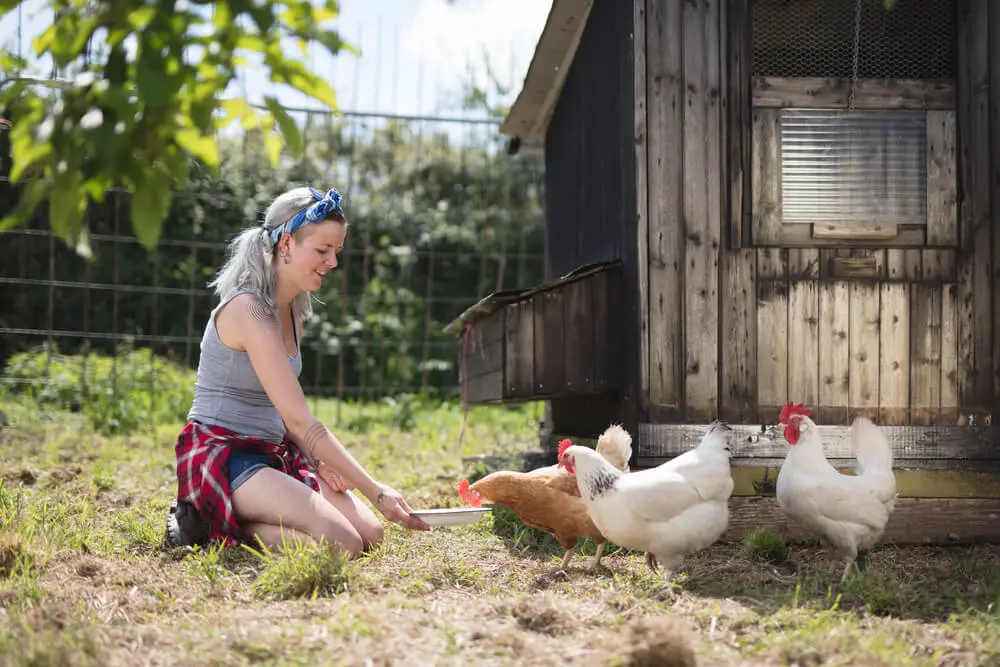
Shannon Stansberry has been engaged in the business of raising chickens for more than 12 years. In 2016, she accomplished the Agriculture & Natural Resources program at Mt. San Antonio College. At present, she tends to more than 80 chickens on her 4-hectare farm. Shannon regularly shares her insights and experience on how to raise healthy and contented chickens on the platform Typesofchickens.com
